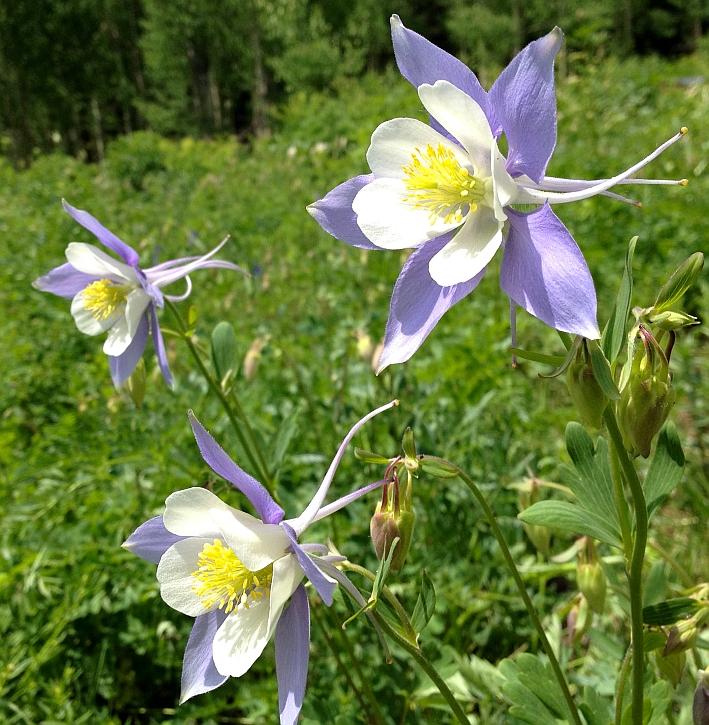What are the plant reproductive consequences of losing a nectar robber?
DOI:
https://doi.org/10.26786/1920-7603(2022)663Keywords:
Bombus occidentalis, Bee declines, Nectar robbing, Floral larceny, Aquilegia caeruleaAbstract
Pollinator declines worldwide are detrimental for plants. Given the negative effects that antagonisitc visitors, including nectar robbers, can sometimes inflict, might declines in their populations instead confer benefits? During the 1970s, reproductive biology of the Colorado columbine, Aquilegia caerulea (Ranunculaceae), was documented near Gothic, Colorado. At that time, Bombus occidentalis, the Western Bumble bee, was one of its many pollinators, but more commonly acted as its only known nectar robber. Bombus occidentalis abundance has declined precipitously throughout the Western USA since the 1970s. In 2016, we documented floral visitors at sites near those used in the original survey. We then experimentally quantified the effects of nectar robbing, allowing us to estimate the reproductive consequences of losing B. occidentalis. We also quantified the potential pollination services of muscid flies (Muscidae, Diptera). The floral visitor community was dramatically different in 2016 compared to the 1970s. Bombus occidentalis was infrequently observed, and nectar robbing was negligible. Our experiments suggested that a high level of nectar robbing would lead to significantly reduced fruit set, although not seeds per fruit. Fly visits to flowers were dramatically higher in 2016 compared to the 1970s. In the absence of bumble bees, muscid flies significantly reduced fruit set below the self-pollination rate. The negative effect of the increase in these flies likely outweighed any positive effects A. caerulea experienced from the absence of its nectar robber. Although the field observations were conducted in a single year, when interpreted in combination with our manipulative experiments, they suggest how A. caerulea may fare in a changing visitation landscape.

Downloads
Published
How to Cite
Issue
Section
License
Copyright (c) 2022 Trevor A. Ledbetter, Sarah K. Richman, Rebecca E. Irwin, Judith L. Bronstein

This work is licensed under a Creative Commons Attribution 4.0 International License.
JPE is an open access journal which means that all content is freely available without charge to the user or his/her institution.
Authors who publish with this journal agree to the following terms:
1) Authors retain copyright and grant the journal right of first publication with the work simultaneously licensed under a Creative Commons Attribution License that allows others to share the work with an acknowledgement of the work's authorship and initial publication in this journal.
2) Authors are able to enter into separate, additional contractual arrangements for the non-exclusive distribution of the journal's published version of the work (e.g., post it to an institutional repository or publish it in a book), with an acknowledgement of its initial publication in this journal.
3) Authors are permitted and encouraged to post their work online (e.g., in institutional repositories or on their website) prior to and during the submission process, as it can lead to productive exchanges, as well as earlier and greater citation of published work (See The Effect of Open Access).
To assure a broader targeted audience, content will be included into databases (such as EBSCO) and directories (such as DOAJ).











